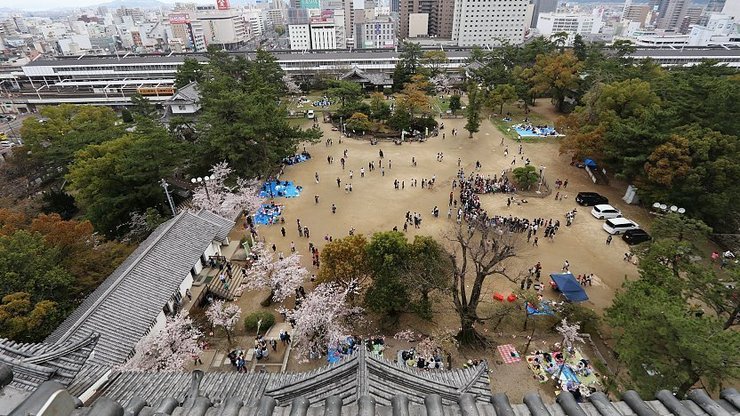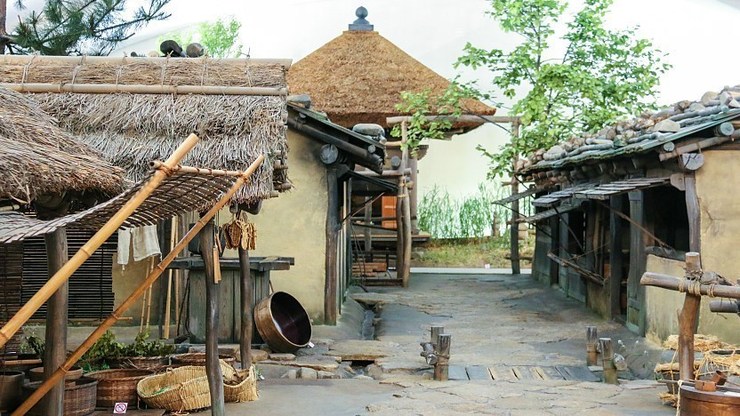After Hiroshima City, Fukuyama is the largest city in the prefecture, originally set up as a castle town in 1619 by Tokugawa Ieyasu’s cousin Mizuno Katsunari. It’s also a stop on the Tokaido-Sanyo shinkansen line. Nearby, the picturesque port city of Onomichi overlooks the Setouchi Islands.

Don’t Miss
• Seeing the sun go down from Setoda Sunset Beach
• Guzzling down a bowl of Onomichi Ramen
• Paying your respects at one of the Chugoku 33 Kannon Pilgrimage Route temples
How to Get There
By local train, Onomichi takes around 90 minutes from Hiroshima, via Fukuyama Station.
Fukuyama Station is a stop on the Tokaido-Sanyo Shinkansen line, accessible from Tokyo, Osaka or Hiroshima City .

Shrines, temples, and pilgrims
Fukuyama and Onomichi are home to many beautiful shrines and temples that range up and down the slopes around the cities. Several temples are part of the Chugoku 33 Kannon Pilgrimage route, including Myooin Temple in Fukuyama, and Senko-ji, Jodo-ji, Saikoku-ji and Kojo-ji in Onomichi.

Beautiful beaches and sunset spots
The area has beautiful beaches such as the white sand Shimanami Beach, surrounded by lush green forests. Setoda Sunset Beach is a long, sandy retreat, which as the name implies, is the perfect spot to enjoy the sunset over the many small islands that dot the Seto Inland Sea.
Tachibana Beach is great for water sports and looks out across the impressive Innoshima Bridge. If you can make your way out to Iwashijima—there are buses from Onomichi Station to the island—the beach is beautiful and quiet; there are dozens of other beaches in the area to discover.
Natural hot springs
After a day climbing up and down the scenic slopes or enjoying the cycling routes, you can relax in one of the area’s natural hot springs. Onomichi Fureai-no-Sato is one of the largest facilities, with restaurants and a hotel on site. Other top spots include Poponoyu, accessible by bus or taxi from Onomichi Station, and Bella Vista Spa and Marina, which offers luxurious accommodations and views over the bay.
Local cuisine
With a mild climate, the area is famous for fresh fruits like grapes and sweet mikan oranges. Thanks to the local fishing industry, the area is known for kamaboko, the compact slices of fish paste often seen in ramen dishes, as well as tsukudani, an intensely flavored topping for rice, often made from fish or seaweed.
Onomichi Ramen is famous. The soup is a light mix of soy sauce and chicken bone broth served with flat noodles and silky chunks of pork fat.

